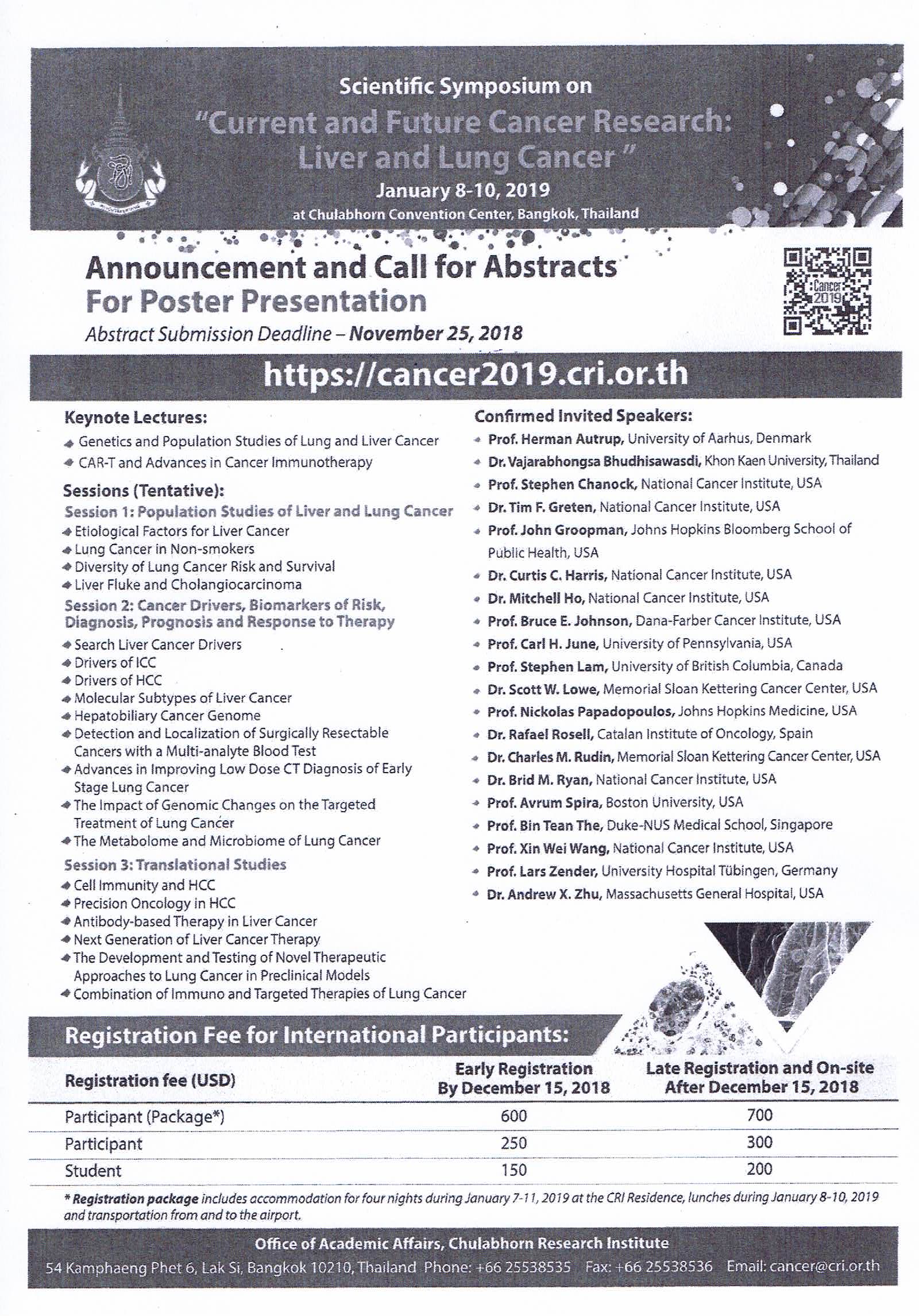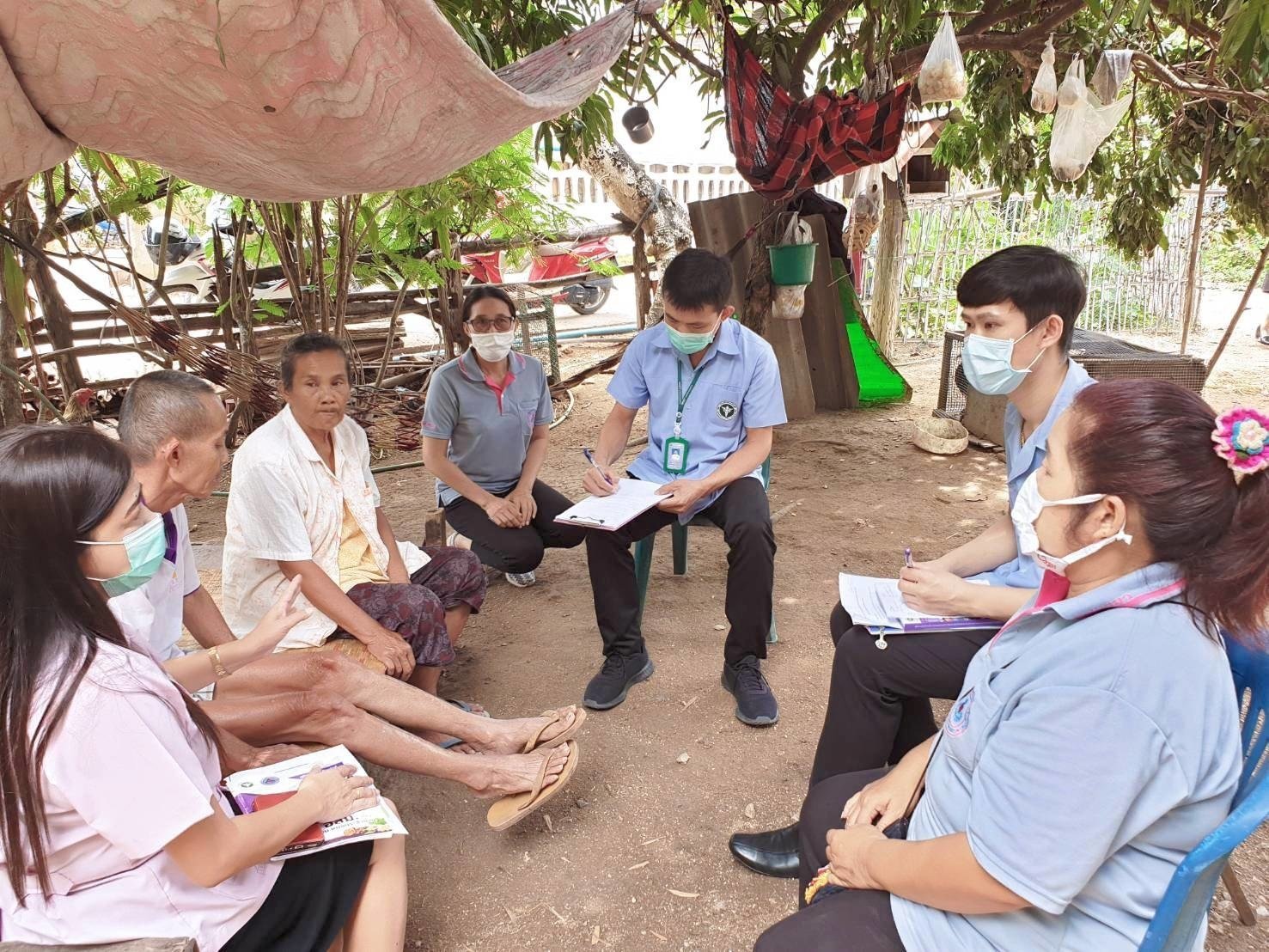What's New
Handover Ceremony of Donation for Typhoon Rai (Odette) Rehabilitation Assistance
On 2 March 2022, Mr. Thawat Sumitmor, Chargé d’ Affaires ad interim, accompanied by Ms. Atipha Vadhanapong, First secretary and Mr. Witsarut Piyavongsomboon, Second secretary, handed over Royal Thai Government’s USD 65,000 donation to Mr. Nathaniel G. Imperial, Assistant Secretary, Office of Asian and Pacific Affairs - ASPAC, Department of Foreign Affairs (DFA) and Ms. Susan E. Quiambao, Chief, Response and Operational Coordination Division, representative from National Disaster Risk Reduction and Management Council (NDRRMC), to assist the Philippines’ relief and rehabilitation efforts in areas that were affected by Typhoon Rai (Odette) in the mid-December 2021.
Chargé d’ Affaires extended his condolences and sympathy to the Government and people of the Republic of the Philippines especially those who live in Visayas and Mindanao. The donation reaffirms Thailand’s friendship and goodwill towards the Government and the people of the Republic of the Philippines, as well as her commitment to fostering the friendly relations between the two countries.

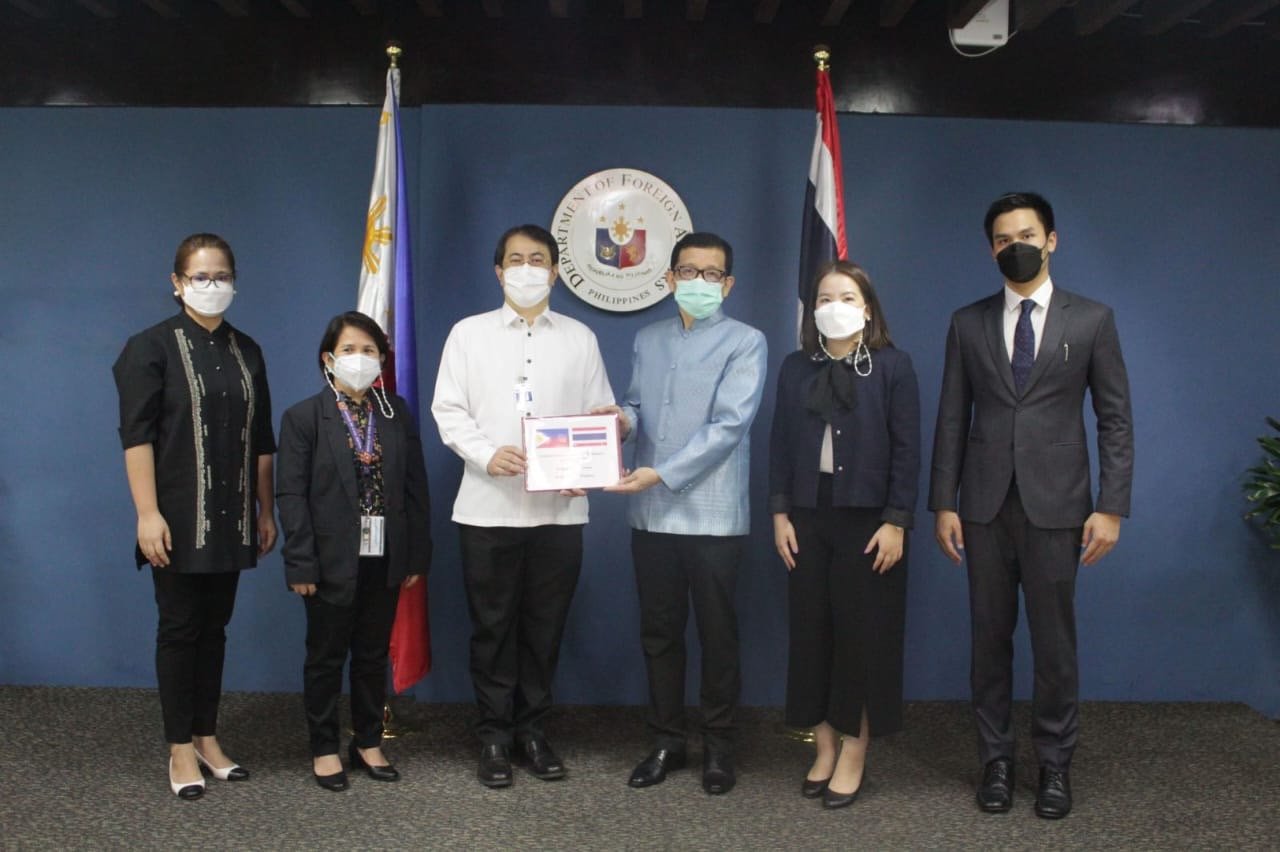
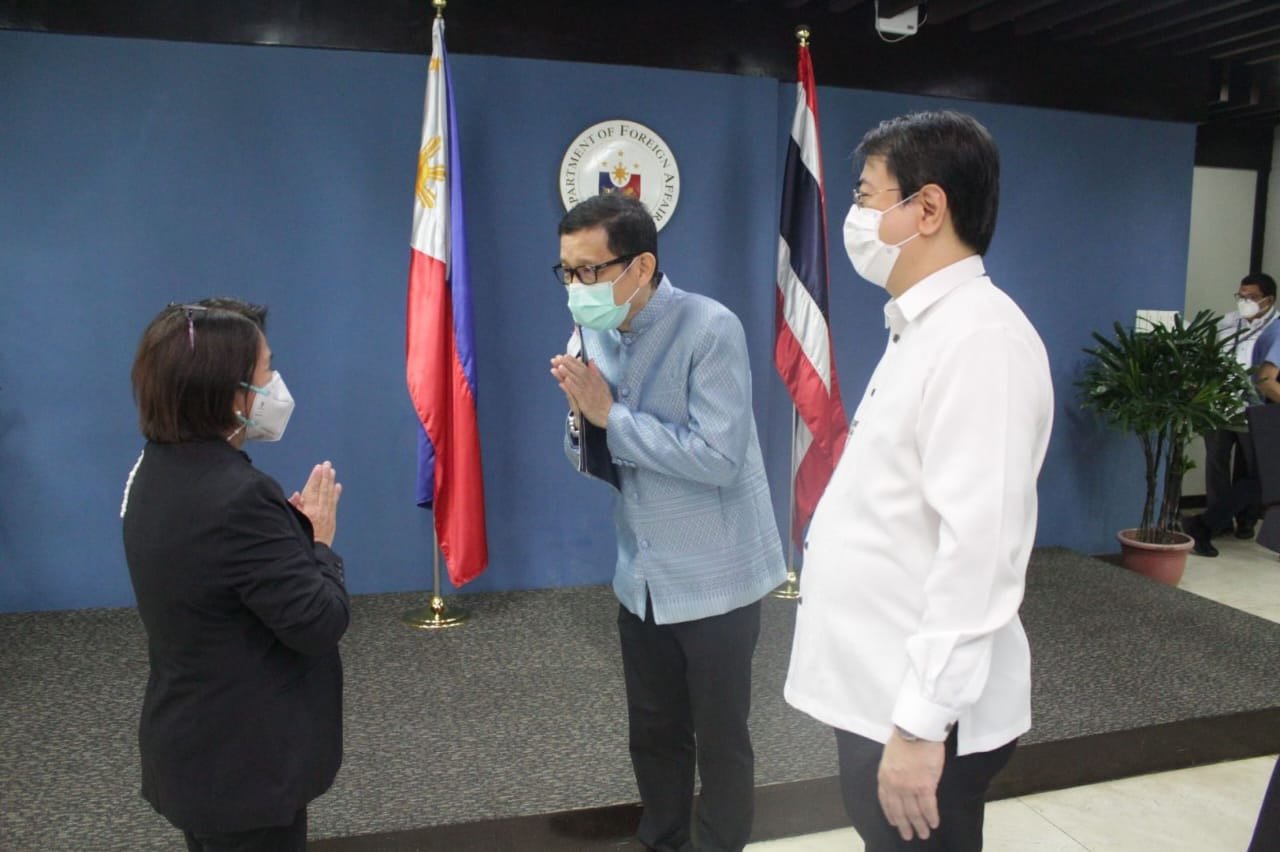
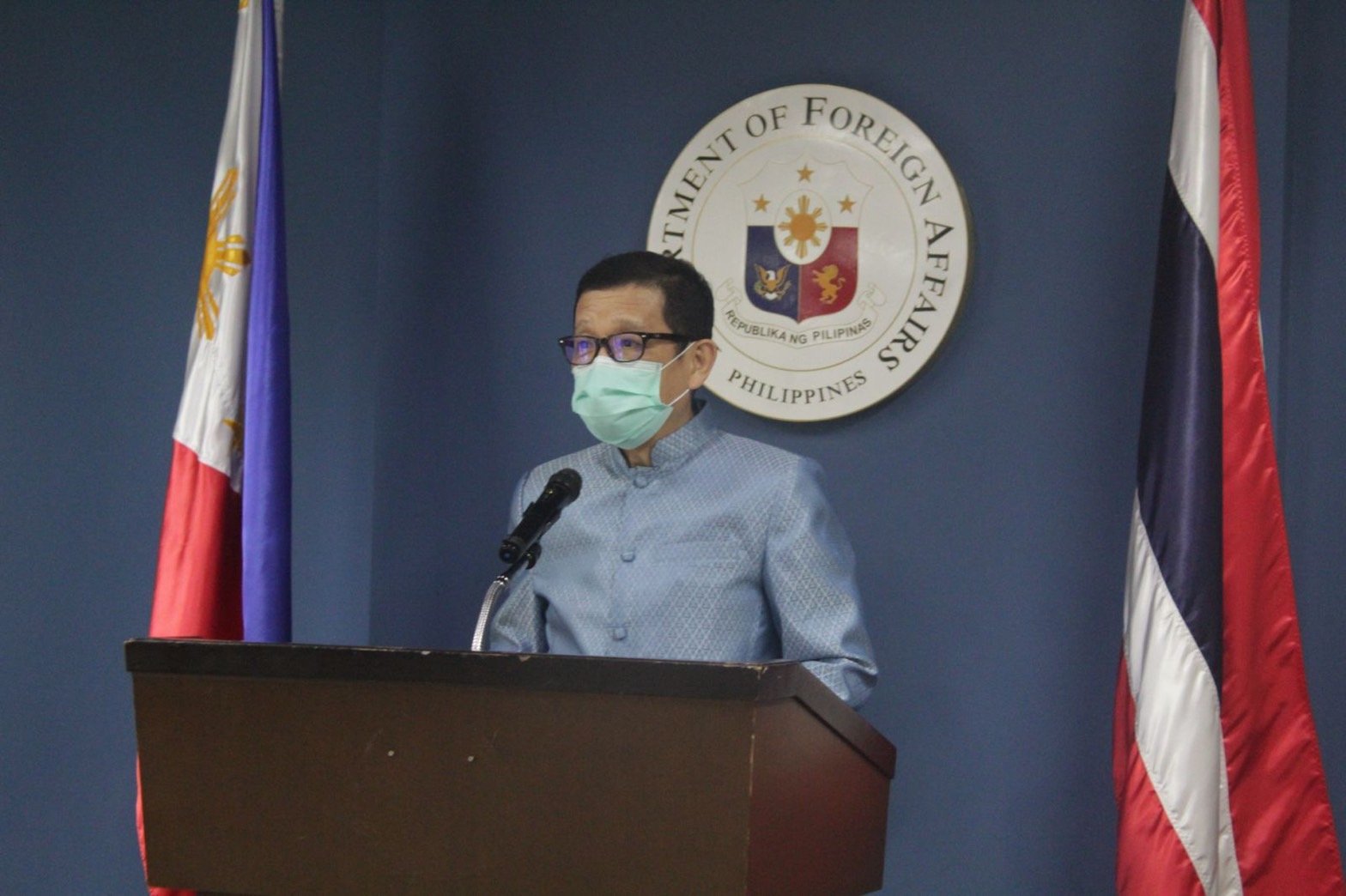

Perhaps What the World Needs is a Little “Kamlangjai” (Inspiration of the Heart)
By Dr. Phiset Sa-ardyen
Executive Director of Thailand Institute of Justice (TIJ)
In today’s increasingly globalised world where news from every corner is reported at a click, we are often inundated by a myriad of issues facing humanity. At times, the plethora of negative headlines may make one question whether our world is becoming increasingly tumultuous, or are we simply better-informed given the advancement of digital information technology. Nonetheless, the thought of the world never having made it ‘past its past’, with issues like gender-inequality, poverty and sexual abuse constantly reported, easily leaves one feeling disheartened and uninspired.
The rise of this digital information age, however, has helped bring long overdue attention to various issues such as the #MeToo movement, which gained traction after a tweet in 2017, exposing the gender-based violence and harassment women face around the world.
But away from the eyes of the mainstream, there remain an enormity of issues that women face in the 21st century. Some issues are hopelessly perpetual, persisting behind locked doors.
In 2021, the Penal Reform International reported a 17% increase in the number of female inmates globally since 2010. In facilities historically designed for men, women in incarceration are forgotten and are exposed to a wide range of issues specific to women, including pregnancy, lack of gender-specific healthcare, violence, mental and sexual abuse. A fact often unreported, is that many female inmates committed only minor offences and are often victims of abuse themselves. Conceivably, given the lack of human rights afforded to this group of women worldwide, the words of Nelson Mandela may still ring true, that “it is said that no one truly knows a nation until one has been inside its jails. A nation should not be judged by how it treats its highest citizens, but its lowest ones.”
Against the backdrop of despair and silent neglect, it is often said that one can always find hope and inspiration. On a summer day in July 2001, a female inmate at the Central Women’s Correctional Institution in Bangkok told a young lady visitor of the concerns of raising her child in prison. The hardships and vulnerability of the female inmate, and the lack of care and opportunities for the innocent child, left an impact on the young visitor - Her Royal Highness Princess Bajrakitiyabha Mahidol of Thailand.
After receiving her Doctorate degree in Law (J.S.D) from Cornell Law School,
and earning a wealth of experience in criminal justice and the rule of law from working as a public prosecutor in Thailand, the princess launched the ‘Kamlangjai Project’ (Inspire Project) in Thailand from her personal funds in 2006. Based on the premise of upholding human rights, the project created the first instances whereby female and pregnant inmates were accorded assistance and support on a range of gender-specific issues such as pregnancy, healthcare, and childcare to allow them to adequately nurture their infants.
Over the years, the program has been implemented in various correctional facilities in Thailand, and has embarked on a long-term approach in inspiring thousands of female inmates in reintegrating into society, through a development-led approach based upon the Sufficiency Economy Philosophy of His Majesty King Bhumibol Adulyadej The Great.
The effects of the Kamlangjai Project was not just confined to Thailand. Having advocated for the rights of the vulnerable both as a public prosecutor and a diplomat, it was recognised that change for women can only be realised if both the social and legal spheres evolve in tandem.
In 2008, the princess presented the Kamlangjai Project at the margins of the 17th Session of the Commission on Crime Prevention and Criminal Justice (CCPCJ) at the United Nations in Vienna, setting off a catalyst for Thailand’s multifaceted global campaign for the conception and adoption of the world’s first set of specific rules on the fair treatment of women offenders. Within the multilateral fora, she spearheaded the ‘Enhancing the Lives of Female Inmates (ELFI)’ campaign, achieving an international consensus to update norms set by the 1995 UN Standard Minimum Rules for the Treatment of Prisoners.
Under her impetus, Thailand emerged as a leading player in the UN’s drafting process, pushing the multilateral drive for the rights of female inmates worldwide. In a mere two years of rigorous political and legal lobbying, the UN Rules for the Treatment of Women Prisoners and Non-custodial Measures for Women Offenders (Bangkok Rules) were adopted by the 65th UN General Assembly in 2010, marking a legal paradigm shift within the international community and embedding the first ever UN standards on the treatment of female prisoners.
With the Bangkok Rules, no longer are women in incarceration the world’s forgotten population. With provisions ranging from prohibition of punishment by close confinement for breastfeeding mothers, support for mental healthcare, and protection for those reporting abuse, the Bangkok Rules established a set of actionable standards for all nations to adhere to. While work continues to be done worldwide, it is indisputable that such efforts have had a tangible outcome, inspiring and directly benefitting the lives of countless women and children throughout the globe.
Inspired by the examples shown by the princess, the Thailand Institute of Justice (TIJ) continues to mainstream women’s rights and dignity vis-à-vis criminal justice and the rule of law. With strength and compassion, one may find hope in her words, that “We must inculcate our children of today on gender issues so as to create the next generation of men who respect women. But above all, we must inspire those with a painful past to have courage to live with hope.”
In revisiting Mandela’s quote, perhaps today, nations – or rather, the world – can be judged in a better light than yesterday. In this increasingly globalized world, where digital technology has overwhelmed us with negative headlines on a daily basis, perhaps what the world needs is a little hope and more “Kamlangjai” or inspiration of the heart.
* * * * * * * * * * * * * * * * *
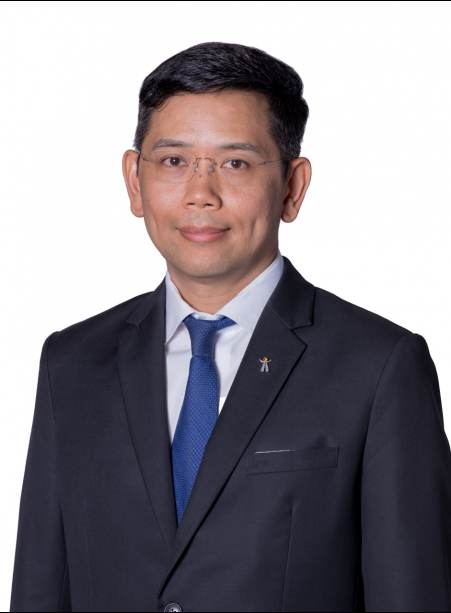
Dr. Phiset Sa-ardyen is the Executive Director of Thailand Institute of Justice (TIJ), which is dedicated to promoting Thailand's justice system, in affiliation with UN-PNI. Dr. Sa-ardyen began his career as a lecturer at Chulalongkorn University and later joined the Ministry of Justice. Prior to his appointment as Executive Director of the TIJ in February 2021, he served in key positons at the Ministry of Justice including Director of International Affairs, Director of Legal Affairs, and Director of Information and Communication Technology Center.
Thailand’s Ungowned and Unsung Heroes Play Significant Roles in Battling Covid-19
|
BANGKOK, June 26, 2020 /PRNewswire/ -- Thailand's success in containing the spread of COVID-19 has been attributed to many features found in many other countries, such as a robust healthcare system and active public cooperation. But one unique feature in Thailand, that is equally important, if not more, is the work done behind the scenes by the legion of over one million village health volunteers, who have effectively expanded public healthcare system to each and every remote village across the country, Ministry of Foreign Affairs of Thailand states. This volunteer network was established in 1977 as part of a primary health care system to raise awareness and encourage community participation. Back in the 1970s, poverty, illiteracy and illness were the main obstacles of Thailand's development, particularly in remote localities, the frontline in battling diseases. However, Thailand's ratio of physicians per population back then made universal access to decent healthcare difficult. This is why the Ministry of Public Health initiated the ingenious village health volunteer programme, recruiting people from the local communities themselves, to fill in the shortage of medical personnel. Primary health care development, including health volunteers, was incorporated into the 4th National Economic and Social Development Plan (1977-1981). Since then, the initiative has continued to flourish. Health volunteers have become one of the key components behind the overall picture of Thailand's economic and social development in the last four decades. The project was built on the spirit of volunteerism and sense of kinship among community members. Therefore, trust and cooperation were easily gained. Volunteers must be literate, have an occupation, live and work in the village, be respected by others, and be willing to help the community. They would be trained and supervised by provincial health officials. To date, there are approximately 1,055,000 volunteers throughout the country, an extensive and proficient network that has strengthened public health capacity during crises. Being one with the communities, the volunteers can detect potential problems and alert the government before the problems escalate. They also provide vital health information to villagers on a personal basis, a simple yet highly effective preventive measure, particularly when access to the internet is limited. The volunteers also serve as an excellent intermediary between the authorities and the communities who are more likely to listen and trust one of their own. Chatchai Phongpornpaisal, head of the health volunteers in Ban Namtuang Village in the northern mountains of Nan province, elaborated that when people started returning home during the COVID-19 outbreak, the volunteers were tasked to collect information from those returnees, especially whether they came from high risk areas. Had this task been undertaken by the authorities, it would have been much more difficult due to the lack of trust and confidence. Another interesting example is Narathiwat province. Volunteers were able to persuade Muslim communities to take precautionary health measures against COVID-19 by informing the villagers that they should cherish their bodies, as given by Allah, as much as possible. When Thailand applied measures that led to temporary closures of many businesses, several thousand people became jobless and moved back home. Such exodus from the capital aroused concerns that COVID-19 could spread dispersedly. However, this mishap did not happen, partly because of the dedicated and resourceful volunteers who screened returnees and set up local quarantine systems in spite of the shortage of facilities. Some even argued that it was actually beneficial for people to go back to their hometowns since local health volunteers could screen and monitor them more closely than would have been the case if they had stayed in Bangkok. Scholars like Francis Fukuyama mentioned that this pandemic underlines the indispensable role of the state in managing crises. Other observers noted that the competent civil service plays a great role in the Thai case. However, the success of Thailand's village health volunteers reminds us that when a crisis befalls, the more stakeholders, the merrier. Besides being a perfect complement to existing state mechanisms, this initiative entails a simple but necessary participatory approach, empowering the people to take ownership of their own health status. The health volunteer model can certainly be applied anywhere. The value of volunteerism and social service is universal and inspirational in this perilous time. Given their willingness to risk themselves for the greater good, the volunteers are Thailand's unsung heroes who expect nothing in return but the smile and laughter of people who appreciate their selfless deeds. SOURCE Ministry of Foreign Affairs, Thailanก |
A Philosophy that Empowers from Within
Thailand is a dedicated advocate for global sustainable development. The kingdom has been promoting its homegrown Sufficiency Economy Philosophy (SEP) as an alternative approach to achieving the United Nations’ Sustainable Development Goals (SDGs). First introduced by King Bhumibol Adulyadej after the Asian financial crisis in 1997, SEP has become Thailand’s development concept that is universally applicable.
The philosophy is a culmination of His Majesty’s reflections from decades of extensive tours and conversations with villagers around the country. Even the grounds of Chitralada Villa, his royal palace, were used for experimenting agricultural projects that could be extended to other areas. This royal legacy remains the core of Thailand’s national development efforts to this day.
SEP provides us with a foundation, and acts as a compass towards sustainability, based on three interrelated principles and two pillars. The first principle is moderation, which means producing and consuming within one’s capacity, and avoiding overindulgence. The second one is reasonableness, or the use of our mental faculties to assess the causes and consequences of actions on our well-being, our household and our community. Prudence is the third principle, which refers to risk management so as to be prepared for impacts from any disruptions. Additionally, the two critical pillars needed to implement SEP principles successfully are knowledge, and ethics and virtues. The former enables us to effectively plan and execute developmental activities. The latter fosters human development by emphasizing honesty, altruism, and perseverance, with the ultimate goal to create active, engaged citizens, and to promote good governance.
SEP is obviously not a how-to handbook for development. Rather, it is a philosophy that guides our inner thinking to immunize ourselves from external shocks. Likewise, there is flexibility for the concept to be applied in any environment and level. However, sufficiency economy does not mean we have to be complacent in life. We can consider going beyond our basic needs as long as it does not exceed our existing means and capacity. The essence of SEP is clear that it encourages us to be sensible and realistic.
SEP has inspired numerous projects both in Thailand and elsewhere. The Thailand International Cooperation Agency (TICA) is Thailand’s coordinator in forging development cooperation with international partners worldwide. SEP-based development models implemented by TICA are specifically designed to assist developing countries escape the cycle of excessive dependence on foreign aid. The objective is to create resilient communities starting from the individual level by enhancing productivity within the limitations of existing income and resources.
Since 2003, TICA has carried out 36 SEP projects in 21 countries across Asia Pacific and Africa, from the Kyrgyz Republic to Timor-Leste and from Mozambique to Solomon Islands. At present, there are 29 projects in 19 countries, which testify that SEP can be translated into action anywhere.
There are two main types of overseas SEP projects to institutionalise the self-development process and to conserve local knowledge and wisdom: 1) the establishment of SEP Learning Centres, to serve as a comprehensive database, and community learning centre with a designated expert to provide guidance; and 2) the development of SEP Sustainable Communities to serve as role models on development.
SEP Learning Centre projects are being implemented in Lao PDR, Myanmar, Timor-Leste, Brunei Darussalam, Tonga, Fiji, and Lesotho. At the same time, SEP Sustainable Community projects are in progress in Cambodia, Vietnam, the Philippines, Bhutan, Sri Lanka, Bangladesh, Benin, Solomon Islands, Vanuatu, the Kyrgyz Republic, Nepal, and Senegal. Thai experts and TICA’s Friends of Thailand Volunteers have been dispatched to work with local stakeholders in several of these countries.
For instance, in Lao PDR, Thai and Lao officials have established Learning Centres for Sustainable Development in Agriculture at Dongkhamxang Agricultural Technical School and Khammouane Technical - Vocational College. These centres maximise the potential of human resources by providing capacity building courses that covers the whole supply chain, such as farm management, productivity management, and market analysis. As agriculture is a vital sector in landlocked Lao PDR, strengthening its agricultural capacity will safeguard domestic food security and enable farmers to sustain their livelihood.
In Bhutan, SEP practitioners assisted in developing community products by localising Thailand’s One Tambon (Sub-district) One Product (OTOP) scheme as One Gewog One Product (OGOP) in Haa and Tsirang Districts. OGOP Model includes the establishment of a Community Learning Centre on community-based tourism in Haa District, and one on sustainable community development in Tsirang District, with a view to empowering local authorities and communities.
In Tonga, the Chai Pattana Foundation under royal patronage and the Tonga Royal Palace have jointly overseen an agricultural model project, which applies “New Theory Agriculture.” The idea is to divide the land for multiple purposes such as for crops cultivation, livestock farming, fisheries, and water resources. This approach has helped to ensure sufficient resources for household consumption, and to reduce the reliance on food imports. It has increased agricultural productivity, generated income, and elevated living standards. The success of this demonstration model has since been replicated around the kingdom island.
Development is achievable through various paths. In many cases such as in Lao PDR, Bhutan and Tonga, the simple yet practical approach of SEP has been as beneficial as any other alternatives while being even more relatable to the respective local conditions.
The concept is, of course, not free from skepticism. But Thailand has tried and tested the applicability of SEP well enough before sharing it abroad. Based on its policy of prosper thy neighbour, SEP is one of Thailand’s tools in helping neighbouring countries to attain economic security, food security, and self-sufficiency. The success of SEP projects in neighbouring countries would not only benefit the local communities there, but also contribute towards peace, prosperity, and closer people-to-people ties along the border areas with Thailand. The same principle applies to cooperation with countries beyond the region, which is to assist them to transition from being recipient countries towards becoming Thailand’s partner in a wider array of dimensions.
Sustainable development is a global agenda that requires collective action, and SEP is Thailand’s contribution to such end. Through decades of accumulated experience, Thailand has discovered its answer on how to pass on a sustainable world to our younger generations through local empowerment. Thousands of development projects based on SEP in Thailand have already improved the livelihood of communities nationwide. As such, SEP could perhaps be another practical and worthy development track that other countries can adapt to their specific contexts.
* * * * *

Mr. Dusit Manapan is a career diplomat, and currently serves as the Deputy Permanent Secretary of the Ministry of Foreign Affairs. In his current capacity, he also oversees the Thailand International Cooperation Agency (TICA), Thailand’s international aid agency. Mr. Manapan has vast experience in both bilateral and multilateral diplomacy, and previously served in key positions including Ambassador of Thailand to the State of Kuwait and Director-General of the Department of South Asia, Middle East, and African Affairs.
Scientific Symposium on “Current and Future Cancer Research: Liver and Lung Cancer
